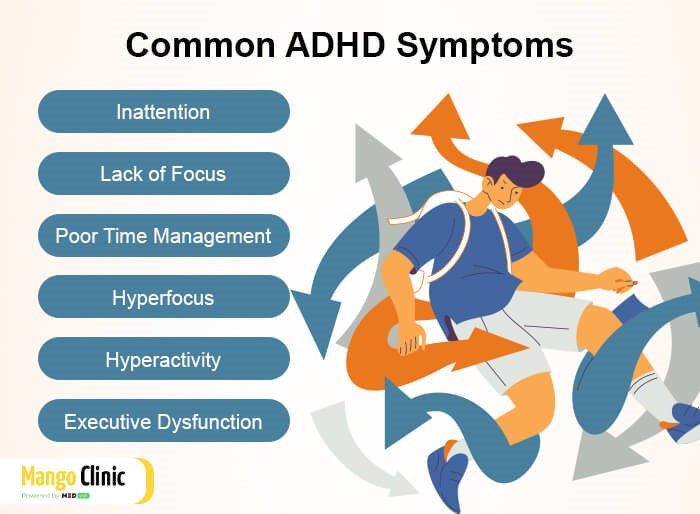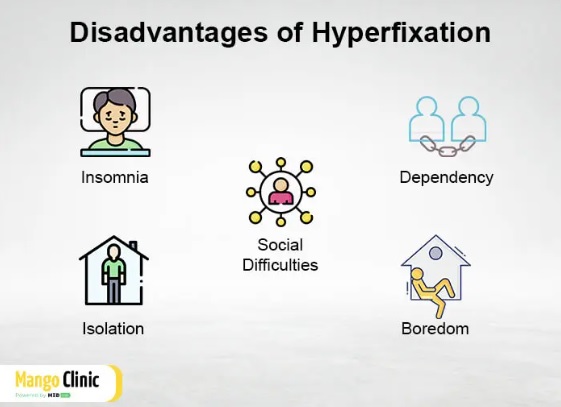
Hyperfixation: Understanding and Managing Obsessive Focus
In the vast spectrum of human experiences, there is a phenomenon known as hyperfixation that affects individuals in various ways. Hyperfixation refers to an intense preoccupation or obsession with a particular subject, idea, or activity that dominates a person's thoughts and behaviors. While it can manifest differently in different individuals, hyperfixation is often characterized by a deep and prolonged focus on a specific interest to the point where it can interfere with daily life and responsibilities. This article aims to shed light on hyperfixation, and its potential causes, and explore strategies to manage and redirect this intense focus when necessary.
Understanding Hyperfixation:
Hyperfixation is commonly associated with neurodivergent conditions such as autism spectrum disorder, attention deficit hyperactivity disorder (ADHD), and obsessive-compulsive disorder (OCD). However, it is important to note that hyperfixation can occur in neurotypical individuals as well, albeit to a lesser degree. The intensity and duration of hyperfixation can vary greatly, ranging from a temporary fixation that lasts for days or weeks to a long-term preoccupation that persists for months or even years.

There are certain criteria associated with hyperfixation that even though not official are definitely associated with this condition:
- Enhanced attention and focus on an activity or object
- No time awareness
- Diminished environment awareness
- Sustained and acute effects of everyday activities
- Affected self-regulation
Causes of Hyperfixation
Here are some of the most common causes of hyperfixation in specially-abled people:
- Neurodivergent Traits
Neurodivergent individuals may experience hyperfixation as a result of their brain's unique wiring. The intense focus associated with hyperfixation can be a product of their heightened sensory experiences, cognitive patterns, and emotional regulation.
- Special Interests
Hyperfixation often centers around a special interest, a subject, or an activity that captivates and absorbs an individual's attention. Special interests can vary widely, ranging from specific hobbies, topics, fictional universes, historical periods, or even specific individuals.
- Emotional Regulation
For some individuals, hyperfixation serves as a coping mechanism or a means of escape from stress, anxiety, or emotional turmoil. Immersing oneself in a hyperfixation can provide a sense of control, comfort, and familiarity, temporarily alleviating distressing emotions.
Problems With Hyerfixation

Some of the downsides of hyperfixated people include:
- Forgetting to sleep and eat
- Neglecting their loved ones and family members
- Not carrying out basic life responsibilities
- Focusing excessively on non-productive yet entertaining things
- Feeling unloved or ignored
- Feeling f frustration while doing things that are not important to them
Managing Hyperfixation
If you or your close ones are dealing with hyperfixation, here are some ways you can manage, help or support them:
- Recognize The Impact
The first step in managing hyperfixation is acknowledging its potential consequences on other aspects of your life. Reflect on how it affects your relationships, work or school performance, and overall well-being. Developing self-awareness allows you to make informed decisions about balancing your interests and responsibilities.
- Set Boundaries
Establishing boundaries is crucial to prevent hyperfixation from becoming all-consuming. Create designated time slots for engaging in your special interest, ensuring that it does not encroach upon essential tasks, such as work, study, or self-care. Prioritizing and scheduling activities can help strike a healthier balance.
- Diversify Interests
While hyperfixation can be enjoyable and fulfilling, it is important to explore other areas of interest. Actively seeking out new experiences and engaging in diverse activities can broaden your horizons, stimulate personal growth, and prevent hyperfixation from becoming a sole focus.
- Connect With Others
Sharing your special interest with like-minded individuals can be a valuable way to channel hyperfixation positively. Joining clubs, online communities, or support groups centered around your interest allows you to connect with others, share insights, and potentially find ways to integrate your interests into social or collaborative activities.
- Seek Professional Help
If hyperfixation significantly impairs your daily functioning, it may be beneficial to seek guidance from a mental health professional. They can help explore underlying factors, develop coping strategies, and provide support tailored to your specific needs.
Hyperfixation Is Not Addiction
The condition of being hyperfixated is not similar to addiction as hyperfixation is considered to be an escape while addiction is dependence. Being self-aware even though tricky is one of the key measures to minimize this behavior if and when it becomes disruptive. If you are dealing with hyperfixation or know someone with this condition, it is best to consider pursuing a Bachelor of Education in Special Educational Needs to get to the root of hyperfocused activity and develop appropriate measures.

